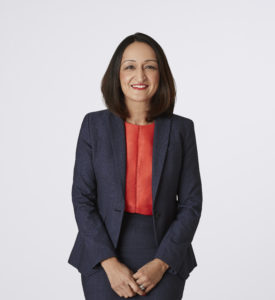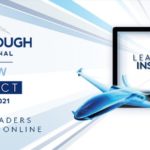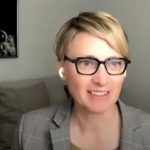Monday marked International Women’s Day with companies across aerospace, defence, aviation and space sharing stories of the positive contribution of women to science and engineering.
Numerous studies have shown that a diverse workforce is not only fairer but leads to better outcomes through challenging fixed ideas and assumptions and identifying new business opportunities.
The Women in Aviation and Aerospace charter (WIAAC) was founded by Sumati Sharma, Aviation Partner at global management consulting firm Oliver Wyman. It was launched by Prime Minister Theresa May at Farnborough Airshow in July 2018 with the full backing of the UK Government.
WIAAC celebrated IWD 2021 by fully activating its Resource Hub, which contains information to help companies work towards improving their gender balance. The free-to-access hub which includes more than 150 useful resources, enables organisations, individuals, leadership, and HR departments to find guidance from different sources, covering every career stage.
Sharma said: “We wanted to focus this International Women’s Day on practical resources, tools and help to drive change.”
“We have also been involved in a series of opportunities to promote the Charter and the importance of continuing to encourage gender balance as the industry builds back from the impact of COVID-19, including a recent podcast with the Institute of Chartered Accountants of Scotland (ICAS).”
The Charter commits signatories to work together to build a more balanced and fair industry for women using data, targets and accountability to effect change. WIAAC signatories sign up to four principles:
1. Having one member of our senior executive team who is responsible and accountable for gender diversity and inclusion;
2. Setting internal targets, where appropriate, for gender diversity in senior management;
3. Publishing progress annually against any targets in reports on our website; and
4. Having an intention to ensure the pay of the senior executive team is linked to delivery against any internal targets on gender diversity and inclusion.
Sharma talked to FINN on the progress made – and challenges posed by the COVID-19 pandemic.
1. WIAAC was launched at the Farnborough Airshow 2018. How has the Charter’s influence grown since then in terms of signatories?
SS: “When gender pay gap reporting became a requirement in the UK in 2017 for all companies with over 250 employees, this was a catalyst and platform that enabled us to take the conversation to the next level for the aviation and aerospace industries.”
“The pay gap information, downloadable by anyone from the government website, allows one to benchmark different companies on how they are performing. The data enables a non-emotional fact-based conversation on gender imbalance. With stats like only 3 per cent of airline CEO’s being women, only 5 per cent of pilots and 10 per cent of engineers, I knew the industry needed to work together to drive the change.
“We started with 40 founding signatories back in 2018. We’ve now got to over 220 signatories in March 2021. Ensuring UK Government support was also key. Every person who works on the Charter works pro-bono. I am proud of the team who work with us on this, about 40 amazing women and men.
“Mandatory gender pay gap reporting was unfortunately paused last year by the UK Government because of COVID-19, but the next reports are due very soon.
With the effect of the COVID-19 pandemic on women causing concerns that the pay gap has widened, many surveys and reports have shown that the pandemic has disproportionately affected women in the workforce. This is largely because of two factors: women are more likely than men to work in industries that were shut down; and overall women took on more childcare responsibilities than men.”
2. Do you have any other future events or research projects in the pipeline?
SS: “We are working very closely with both UK Government, and International Air Transport Association (IATA) as we take the Charter to its next phase.”
“The Charter is industry-led from Aviation and Aerospace organisations in the UK, and we fully recognise the power of collaboration and partnership to move this agenda forward.”
“The issues we face on diversity, equity and inclusion are so big, and the targets are challenging, we cannot do it alone. When you look at any issue, such as gender imbalance or sustainability, it is very clear that no individual institution, government or company can provide the solution.”
3. The COVID-19 pandemic has had a devastating effect on the aerospace and aviation industries. What actions will the Charter be taking to ensure its aims remain in focus during the process of rebooting the economy?
SS: “The Aviation and Aerospace industry has had an incredibly challenging twelve months since March 2020.”
“One of the most important aspects I have noticed is that inclusive leadership must start at the top, with leaders being personally and publicly committed to drive change. This sets the tone from the top, where leadership is aware, educated and understands the gender bias and systemic barriers that disproportionately thwart women leaders, and motivate them to be change agents.”
“Organisations that treat inclusion and diversity like a business initiative are where this is moving the dial. They are the ones that ask: “Do we have an explicit plan for how to get ‘x’ women in leadership roles by ‘y’ date?”, and “do we track progress and hold business leaders accountable?”
“Only by continuing to focus on these four foundational principles with the 220+ organisations, activating the C-Suite as Sponsors of the Charter, and promoting and increasing engagement with the Charter, will we be able to move the dial.”
4. One of the aims of the Charter is to attract girls into STEM careers. What advice would you give to young women considering the range of opportunities available in the sector?
SS: “Current rough patch aside, the travel industry is wonderful and evokes such passion with so many. First of all, taking the STEM route gives you so many options in your career. I started by qualifying as a Chartered Accountant.”
“I was inspired by my older cousin Rashmi, who was my mentor and role model when I was a teenager. I know the data-led trusted strategic adviser and partner I am today is grounded in those structured foundations from those early days.”
“After my first role I then joined Virgin, and I ensured I moved around the functions – I became a stronger and more rounded senior leader by diversifying from finance to strategy then commercial and HR. The more you diversify your skillset and experience, the more capable and talented individual and leader you become. You can see complex problems from numerous vantage points.”

